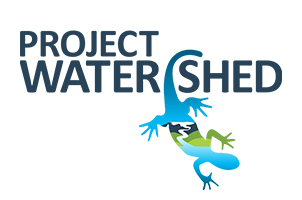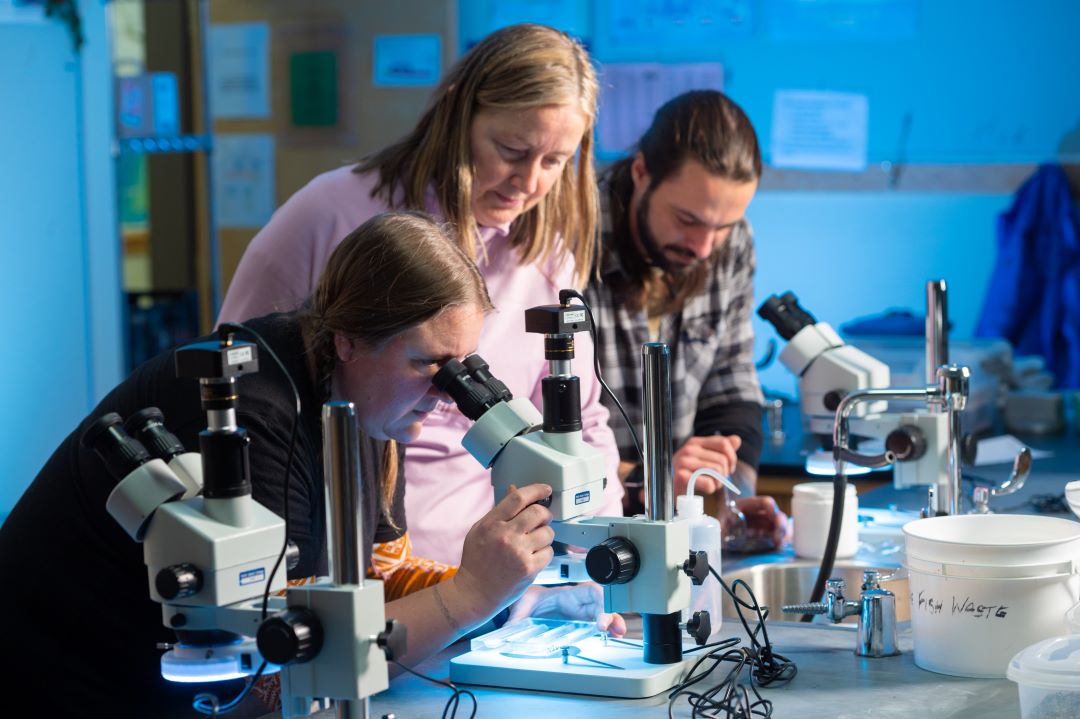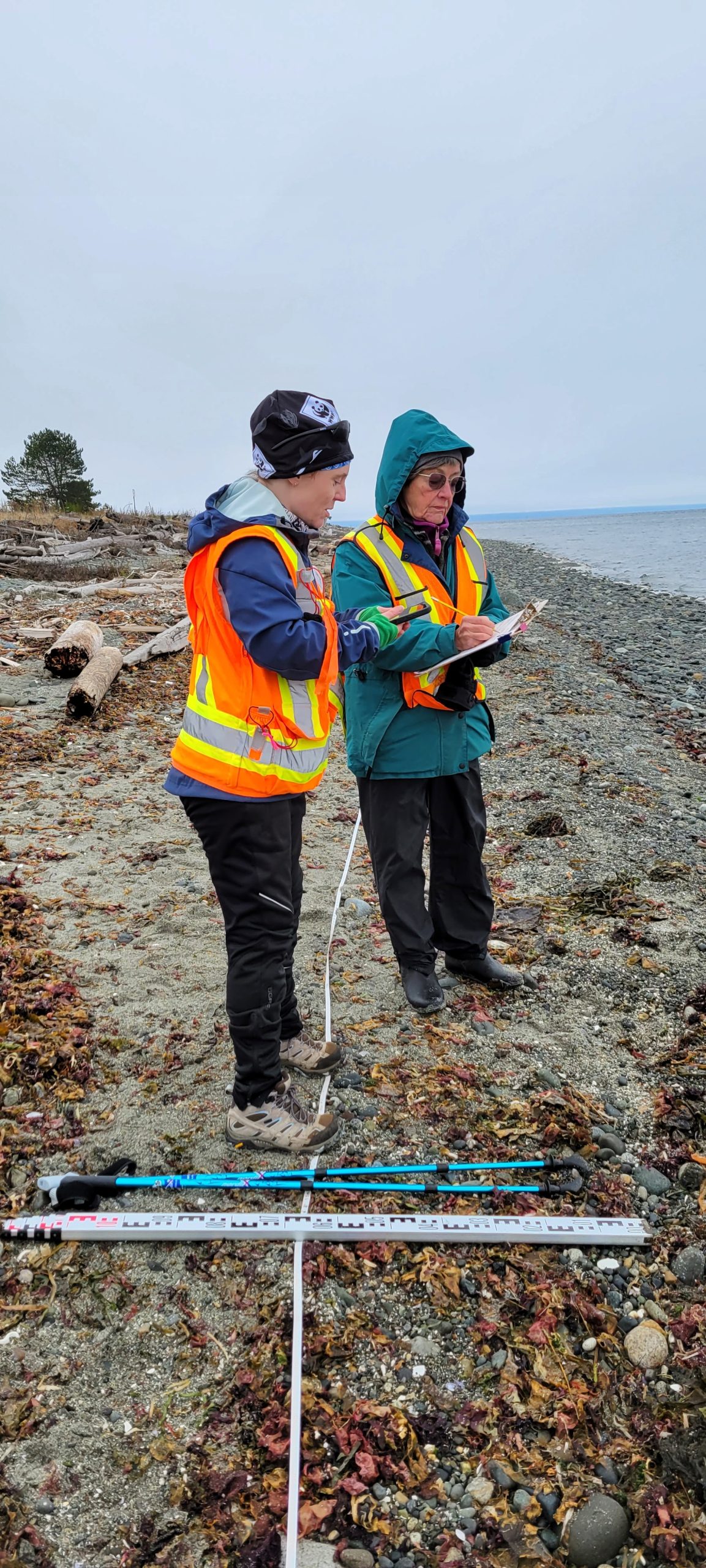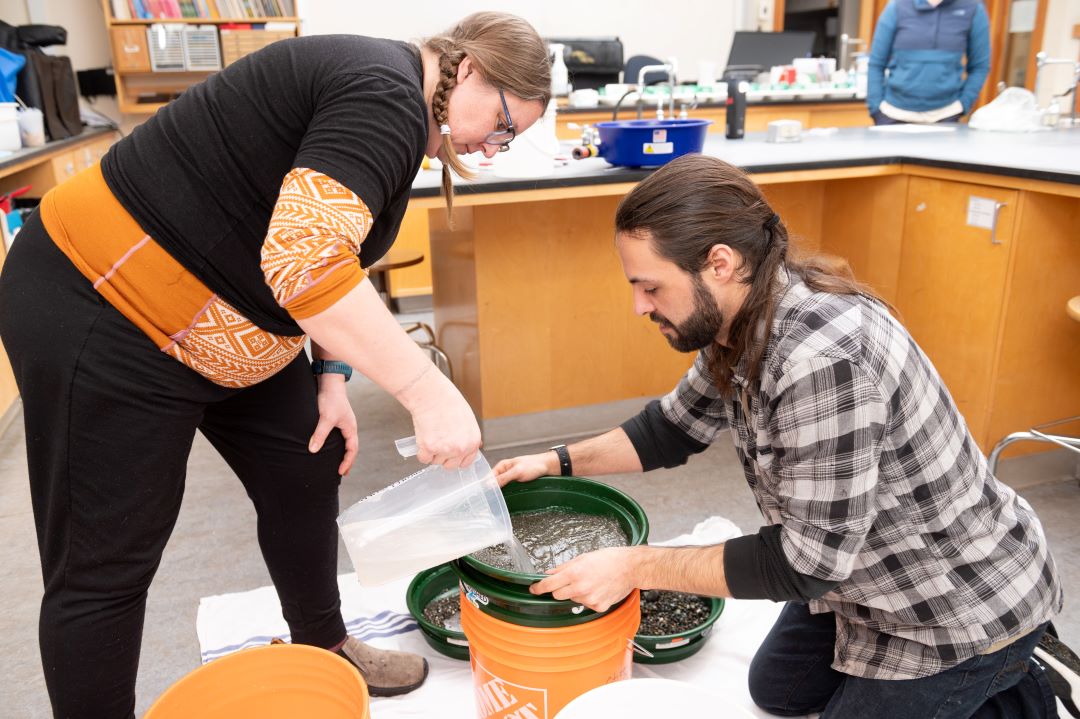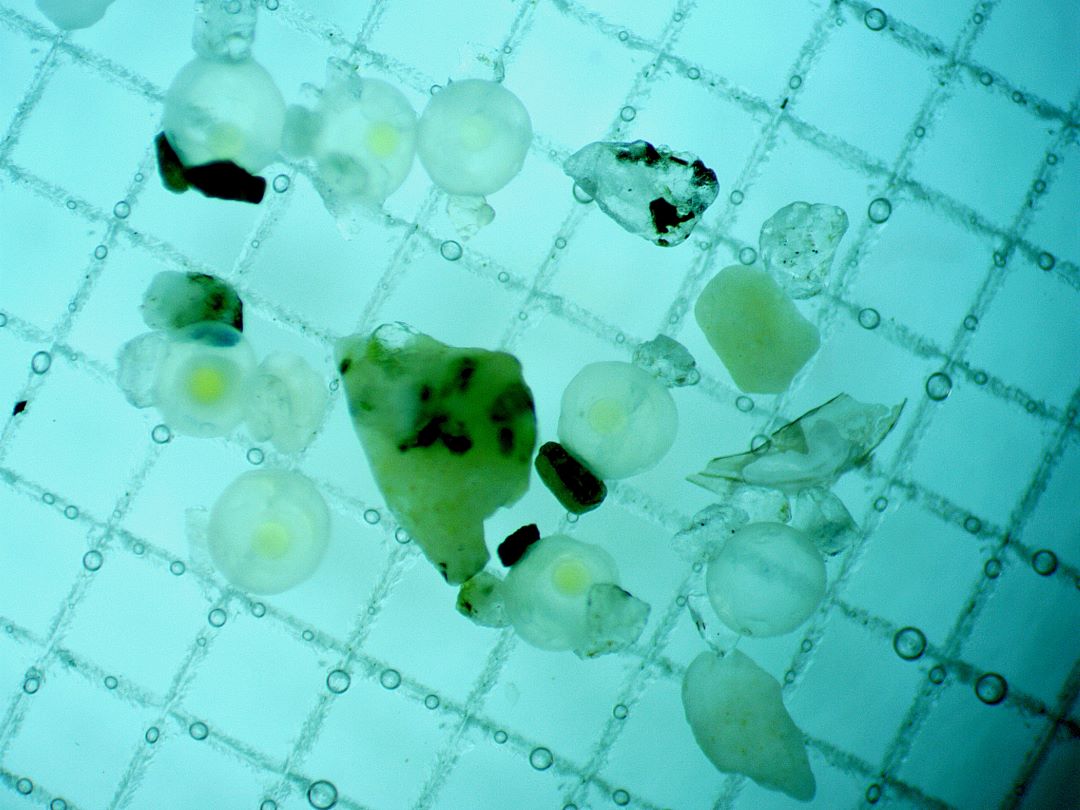Project Watershed receives $1.4 million to support forage fish research!
Forage fish Lab work ~ North Island College
Beach survey for eggs ~ Tannis Baker
Sieving for eggs ~ North Island College
Pacific sandlance eggs ~ Aaron Schmidt
Project Watershed is very excited to announce the award of $1.4 million dollars of funding from the BC Salmon Restoration and Innovation Fund to support our forage fish research, monitoring and restoration! This funding, provided over 3 years (2023-2026), will support our intertidal and pelagic forage fish research as well as that of the Coastal Forage Fish Network, which brings together stewardship groups and First Nations partners across coastal British Columbia. The funding will advance research that furthers the state of knowledge of two key species, Pacific sand lance and surf smelt, throughout the Province, aiming to close key knowledge gaps around where these species are spawning, and identify important hot spots for the species.
The funding will also support the work of the Coastal Forage Fish Network, a collaborative partner group that works to raise awareness about these fish, monitors spawning beaches, and works collaboratively to inform policy and processes that protect and conserve forage fish. This work is conducted in partnership with North Island College, who are engaging with faculty and students supporting the beach monitoring and lab analysis. The College is also leveraging funding from the Natural Sciences and Research Council of Canada to acquire specialized equipment and support ongoing student involvement in this project. NIC’s Georgie Harrison has been supporting the project since 2019 and adds, “this collaborative project has provided opportunities for several NIC biology students to apply their skills and knowledge from their coursework to actual research experiences. Our students have learned practical skills, formed relationships with other like-minded students, worked alongside professional biologists, and have contributed to a study that will ultimately help conserve forage fish populations and maintain our marine ecosystem.” Furthermore, the funding will also be used to restore two beaches to improve forage fish habitat through improvement of ecological function, nourishment of sediment, and planting and restoring of native ecosystems.
Forage fish, a crucial component of the BC coastal and marine food web, are species like Northern anchovy, Pacific sand lance, Pacific herring, surf smelt, and eulachon. While there are just a handful of species, these fish represent a disproportionate value to food web as they were historically abundant and represent a key linkage between plankton and larger fish and vertebrates within the food web. Some of these fish are core diet elements for Chinook and Coho salmon, and so conserving these fish can not only promote healthy salmon stocks, but also benefit other species who rely on salmon like the Southern Resident Killer Whales. Project Watershed’s Jacqueline Huard, a forage fish biologist, has been working with the project since June of last year. “It’s an exciting time to work on forage fish in the Pacific northwest, we are just really starting to pull back the curtain on these cryptic fishes. There are new tools like environmental DNA testing, GIS, and modelling options that are providing us with more information than we were able to gather before”, said Jacqueline.
Project Watershed is grateful for the support provided by BCSRIF, a federally and provincially co-funded grant, and is looking forward to furthering the state of knowledge and state of conservation as it relates to these important fish species.

